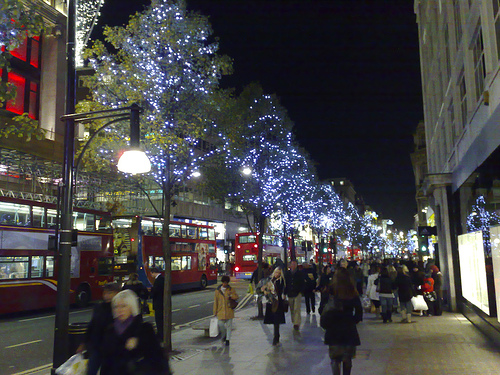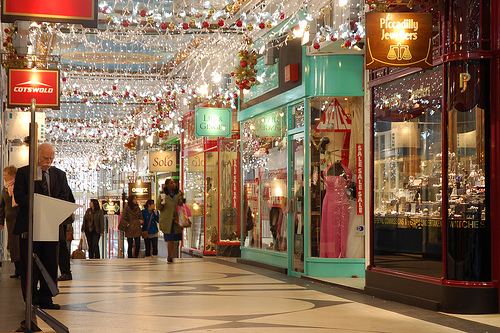 The trading that occurs in the run up to Christmas is very crucial to retailers even in the “normal” years. It allows them to make up for the losses they might have incurred over the year and helps them prepare financially for the coming year. 2008 has been, by any standards, anything but a normal year. Huge banks have become small banks, some have been swallowed up by bigger banks, some have merged with other banks while some have disappeared altogether.
The trading that occurs in the run up to Christmas is very crucial to retailers even in the “normal” years. It allows them to make up for the losses they might have incurred over the year and helps them prepare financially for the coming year. 2008 has been, by any standards, anything but a normal year. Huge banks have become small banks, some have been swallowed up by bigger banks, some have merged with other banks while some have disappeared altogether.
Little surprise then that the past few weeks have been really tense for the retailers. The number of shoppers visiting the shops have decreased. As a result, retailers have been forced to cut their prices to attract shoppers. According to Experian, the number of shoppers during the weekend, the last weekend before Christmas, was down by 8.7% as compared to last year. However, the number of shoppers yesterday were up 13.6% as compared to the same Monday last year.
It’s a bit unfair to compare the two corresponding Mondays because last year the Monday was Christmas Eve. The kind of shoppers who go shopping on Christmas Eve are generally those looking for food items or ingredients for their Christmas dinner, last minute shoppers or those looking for last minute bargains.
Even though the number of shoppers increased, it still remains to be seen how much revenue that translates into. The main reason why more consumers went out to shop perhaps has a lot to do with a last minute heavy discounts by retailers in desperate attempt to attract shoppers. According to the accountants Ernst & Young, the average discounts were 40%, up from 38% last year. It means that even though people had more shopping bags in their hands, the retailers wouldn’t have made a lot of money from that.
Although the high street is seeing a decline in the number of shoppers, according to Hitwise, the number of people visiting the websites of high street retailers has increased. Between Dec 18 and Dec 21, traffic to online retailers(including internet-only and high street) increased by 2.2% on average as compared to last year. Websites of high street retailers saw their traffic increase by 2.7% on Saturday and 5.9% on Sunday as compared to last year.
When it comes to prices, mostly the online retailers clearly have an advantage over their high street rivals. But their biggest drawback is that the items have to ordered before a certain date to ensure that they are delivered in time for Christmas. On the other hand, the websites of high retailers allow the shoppers to book their products online and pick them up instore. It may not be cheaper than the internet-only retailers, but it certainly is more convenient. One of the put-offs of shopping on the high street before Christmas is clearly having to navigate through crowded streets and aisles holding your shopping bags. It is also very hard to compare prices across different retailers and browse the items leisurely.
The rise in the number of shoppers will definately be of some relief to retailers. But it will by no means make up for the dismal sales and revenues they have generated over the past few weeks. Woolworths and MFI have gone bankrupt and Whittard of Chelsea is said to be on the brink of administration. And it is clear that more will have the same fate in the new year, what remains to be seen is who they will be.



